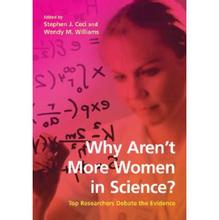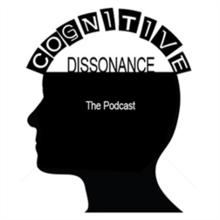In the passa ge of “Underrepresentation or Misrepresentation”, professor Doreen talks about the reason for fewer women in Science. Doreen thinks that it definitely has innate talent and interest differences between men and women, which is a quite different point of view from chapter One.
ge of “Underrepresentation or Misrepresentation”, professor Doreen talks about the reason for fewer women in Science. Doreen thinks that it definitely has innate talent and interest differences between men and women, which is a quite different point of view from chapter One.
As a matter of fact, I partially agree with this point of view that women and men have talent difference, not in general intelligence, but in specific cognitive abilities. In real life, I often find that men are very good at solving problems such as spatial task, and women have better abilities in learning language. Now, I am learning linear algebra and I find more difficult in learning these spatial tasks than my men classmates. Also, in high school, I find that men have quite big problems in learning English, while the tasks are very easy for women. Men and women both start in the same point—don’t know anything about the English and the Math, but why do they divide into two different ways? Gender schema we talked in Chapter One is definitely a  reason, but I think it’s not strong enough to answer this complex question. The difference in sex hormones which influence our cognitive abilities can be another reason.
reason, but I think it’s not strong enough to answer this complex question. The difference in sex hormones which influence our cognitive abilities can be another reason.
Although I believe the point above, I don’t think that women are less interest in science field. This showed “less interest” is because of the cognitive difference and the schema but not because of truly “less interest”. Since mentioned in passage, the cognitive difference is innate and presents very early in life, this leads women to choose less classes in math because when they are learning math, they find a lot of difficulties. Also, the gender schema influences women unconsciously to have a point that the women who learning science are very strange. So in order to be a normal woman, many females will give up their interest in science. I have many female friends who are really interest in science and engineering, but they give up in pursuing science in university because they think it is very difficult. But I think, as for a woman, although we face a lot of difficulties from the schema and the science itself, we could conquer them by using more efforts than men. And this is the reason why I choose to major in Math, and one of my best friends chooses to major in Construction of Robots. If we tell ourselves that it’s difficult, it definitely becomes more and more difficult.
Next, I want to point out some shortages, I think, in this passage. First, as for the question that does training and access to higher education influence the cognitive difference, the professor’s answer is “no”, but what I think it’s “yes”. From the Chapter One, we can see that the ratios of women a nd men who get good grades in difficult math are increasing annually. If training and access to higher education have no help, how could this situation form? And in the past, women in China are not allowed to go to school, but now, when the access to higher education is opened, so many women get high performance in Math. Second, as for the point that the hiring situation is now inclined to women, I think it’s a very narrow view. This situation is true when there has lots of scholarship given by the government to women, but this happens only at the workplaces that have the scholarships. When we talk about normal workplaces such as companies, women have still faced a lot of unfairness in employment. And even the female employers have unfair opinions about women due to the gender schema.
nd men who get good grades in difficult math are increasing annually. If training and access to higher education have no help, how could this situation form? And in the past, women in China are not allowed to go to school, but now, when the access to higher education is opened, so many women get high performance in Math. Second, as for the point that the hiring situation is now inclined to women, I think it’s a very narrow view. This situation is true when there has lots of scholarship given by the government to women, but this happens only at the workplaces that have the scholarships. When we talk about normal workplaces such as companies, women have still faced a lot of unfairness in employment. And even the female employers have unfair opinions about women due to the gender schema.
What’s more, I want to add something I think into the views of Professor Doreen. First, the cognitive differences are different from country to country. In China, because of the overflow of population, job is a very important problem to men and women. And in order to fulfill the need, most of women are choosing to learn science which can help them become more competitive in job competition. And because of this, the cognitive differences are quite small compared with the United States. Another point is about the situation of fairness. Although the government has given lots of awards to encourage women to study in science, this doesn’t change the real situation. Most of the awards, though named for “women”, are actually for men. And if this situation continues, we can’t see the future for women.
In addition, what I think it’s very significant to point out is about the difference between aptitude and achievement. Men are quite good in aptitude of science, but when they are doing tasks that are not very difficult, they get fewer grades. In my opinion, this is because women are more careful than men, so when they are doing easy tasks, they make fewer mistakes. But how could we do well in difficult tasks when we are not good enough in cognitive skills? Training is the only answer. And because we are more careful, if we are equally good in aptitude of science, we can do better. This is the future I am longing for .
.